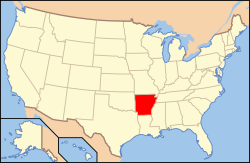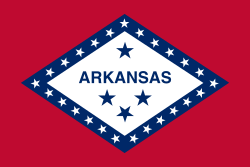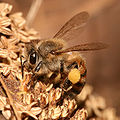
The state of Arkansas has numerous symbols.
Though two other songs are designated as "state songs" (plus a "state historical song" which was the state song from 1949 to 1963), by state law, the secretary of state must respond to any requests for "the state song" with the music of the state anthem, "Arkansas", which was the state song before 1949 and from 1963 to 1987, when it became state anthem and the other songs gained their present status. This is strictly to preserve the status of "Arkansas"; all four songs are either copyrighted by the state itself or in the public domain. The oldest symbol is the Apple blossom, designated in 1901. The most recently designated symbol is the Cotton Belt 898, designated in 2021.





























